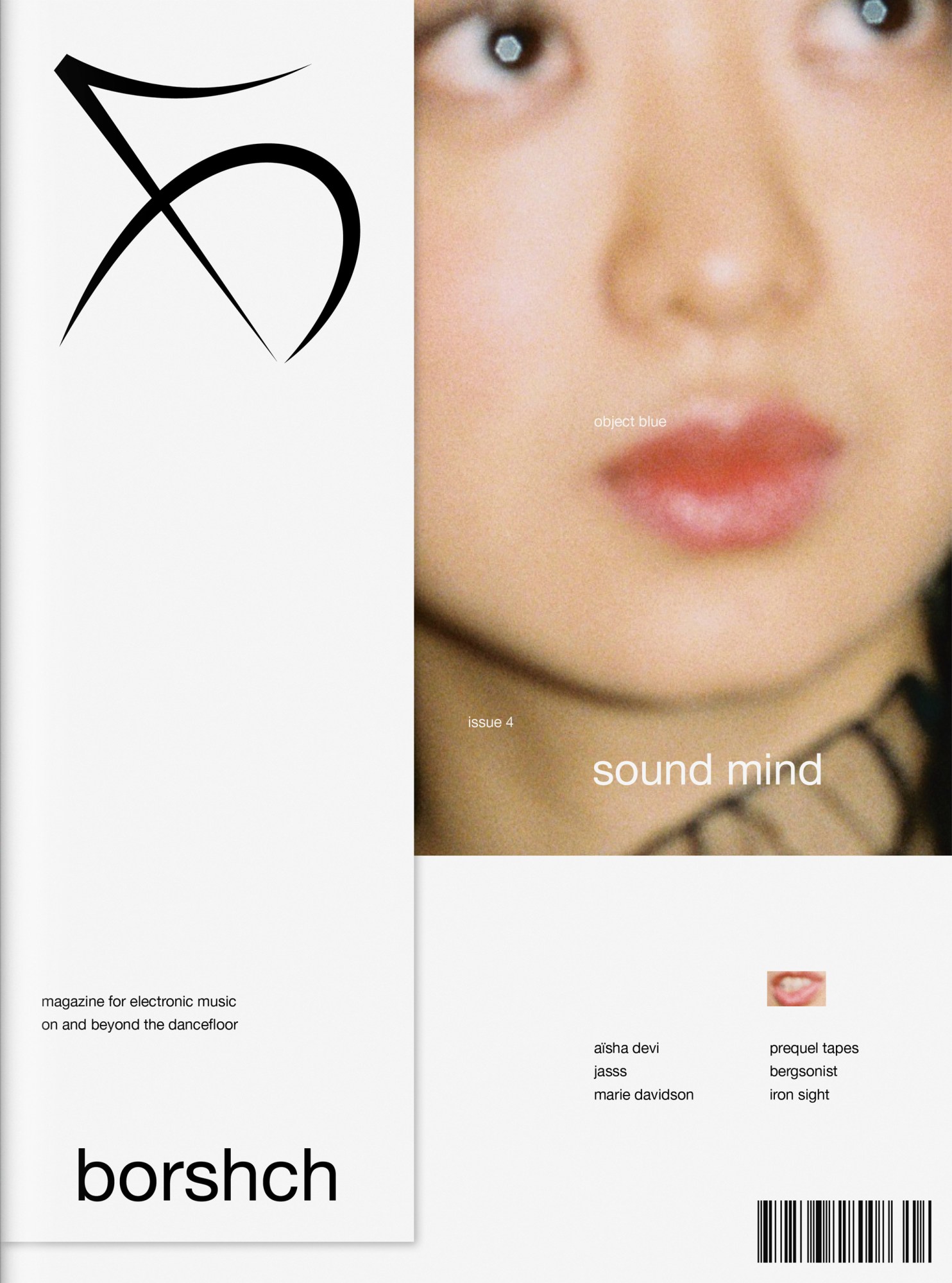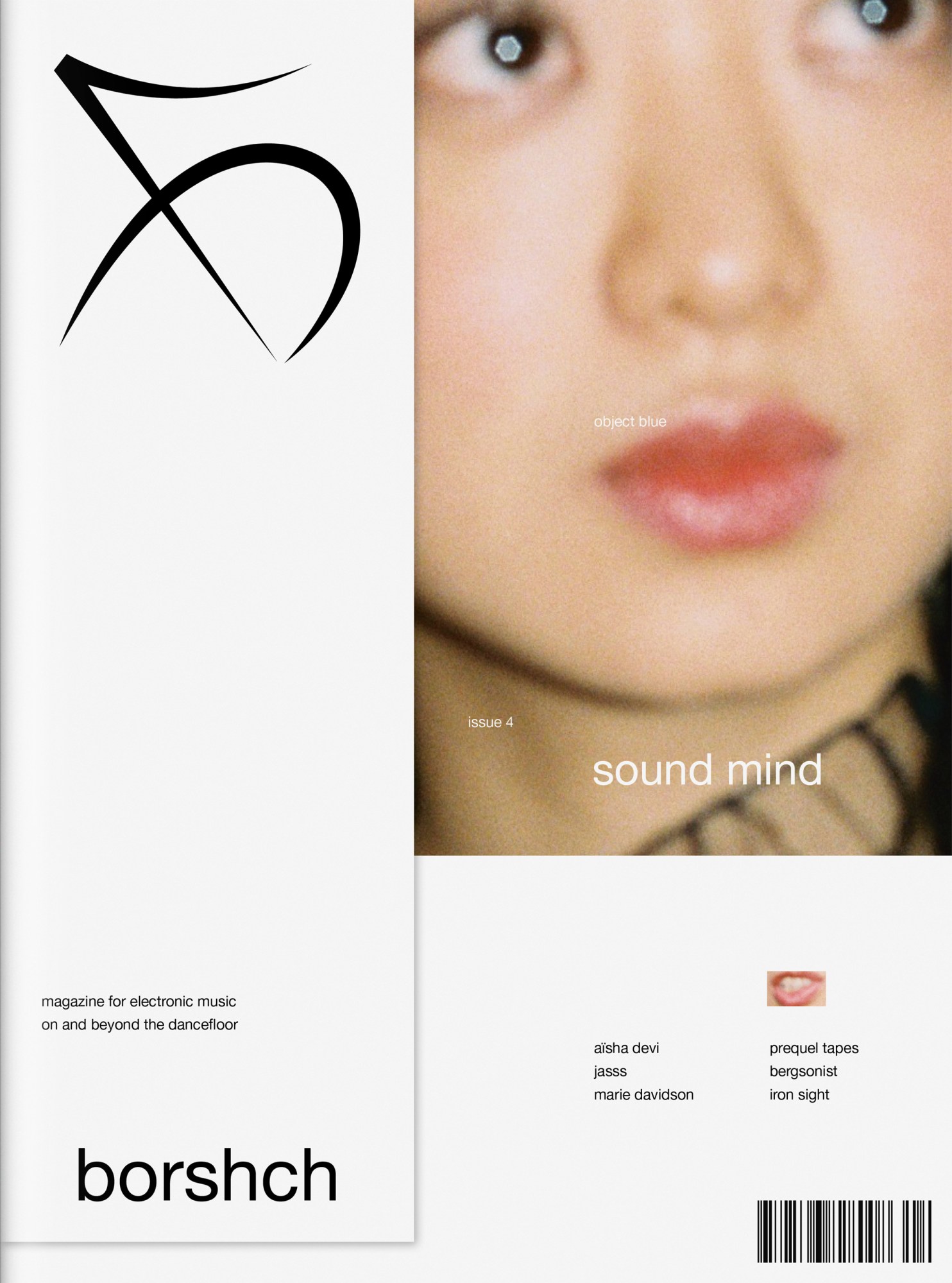This article originally appeared on i-D Germany.
“The Sound Mind Issue of Borshch magazine dives deep into the darkest corners of the psyche and provokes honest dialogues. We speak with musicians who use the transformative power of music to purge, heal and enlighten,” say founders Mariana Berezovska and Tiago Biscaia. Among the musicians featured in their fourth issue are Danse Noire founder Aïsha Devi, Berlin-based producer JASSS and i-D fave object blue. “We seek openness and honesty to remind ourselves of the uniting force of underground communities and to rediscover empathy through making, listening and dancing to music,” the duo continue.
We are pleased to present you with an exclusive short excerpt from the cover interview, by Claire Mouchemore, in which object blue speaks openly about her depression and impostor syndrome:

I know a lot of people deal with imposter syndrome and the feeling of not deserving opportunities on a daily basis. How have you dealt with that and moved past it?
It was Laurel Halo who said ‘don’t worry about imposter syndrome, it never goes away’. That was kind of a revelation for me, and I thought it was time to make peace with my imposter syndrome and stop fighting it. Another way I dealt with it was to realise that the world exists beyond me and my ego, it’s not really about you and how you feel about yourself — think about what you can do for others. We all live with imposter syndrome, we always have, and everything that people want to say to us in a derogatory manner — we’ve already thought about it. So go ahead and say it. We’ve had that conflict with ourselves and we’re still here and we’re still smashing dancefloors everywhere. Follow in our footsteps. I remember my heart rate would increase when I would open Ableton because I was so afraid that I wouldn’t make anything ‘good’ that day. Now I don’t have that anymore, I open Ableton without a flinch. That comes with just doing it, repetitive motion and routine. Music is a higher power than all of us and I’m just a servant of the mother beat; I don’t get to have any say and that’s quite freeing.
It’s coming to terms with the fact that you can’t control everything and you shouldn’t try to, and that’s definitely ego related, wanting to be in control. There’s this idea that exists and you want to destroy it, but you can’t, so you should move on and stop wasting time dwelling on it.
Exactly. Whether people think you’re an imposter or not, let’s just do it. We have to move past all those restrictions that we put on ourselves and that others put on us.

You’re quite open about your mental health on social media. How do you deal with your mental health getting in the way of your music?
I really have no shame about living with chronic depression. I feel more shame in having mental health problems and not treating them because that’s when it really harms the people around you. I became depressed when I was 13 and I only managed to start therapy when I was 19. Therapy was instrumental to my recovery. As you grow a bit older you start to realise that, in music, when we are putting our name on something that we’ve made — instead of doing a name- less job — that it’s really easy to spiral, and I think that’s why so many musicians have breakdowns and deal with a lot of mental health issues. We have a big ego which has been nurtured since we were young for being artists. I mean, I didn’t have that, I was incredibly bad at the piano and had that ego broken down very early and very severely. My parents thought I was a piano prodigy but I actually really sucked, and that kick-started my depression.
I noticed that if I’m not satisfied with something that I produced, I tend to oversleep the next day, so I looked at the behaviour and then made defence plans to combat that. When I used to have writer’s block I would shut down, and now instead of thinking about how I can start to write again, I think about what I need. A walk, something to eat, a shower, or to sit down and watch a film. I do stuff that is healthy for me. I live regularly and wait for it to come back on its own and it always comes back. I talk a lot about music being a higher realm, but we, the instruments of that musical creation, are just people — we are not among that higher existence, we’re still ineffective babies. You have to feed that baby and pay attention to it. There’s no magic solution or something you can tap into.

The launch party for the new issue of Borshch will take place on Saturday 16 March in Berlin. More information here.
